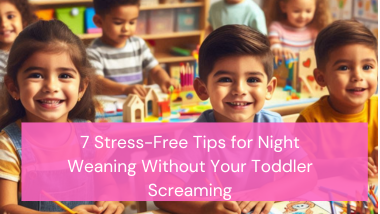
Did you know that your child’s future can be dependent on the foundation of their education. Giving your little one a head start might have been in mind from birth. You probably might be thinking of either a state preschool or a private preschool.
But how do you know if a stateschool will be beneficial for your child? How does the curriculum look like? What about locations? This blog addresses the top five questions parents often have about state preschool programs, and the answers to these questions that would help you make informed choices for your child’s education.
Lets start by answering the most critical questions;
1. What is a State Preschool Program?
A state preschool program is an educational initiative funded by state resources, designed to provide early childhood education for children, typically ages 3 to 5.
These programs aim to foster social, emotional, and cognitive development, ensuring that children entering the lower primary are ready to learn.
State-funded preschool programs are particularly designed to support low-income children, offering high-quality education at little or no cost to families.
By participating in these programs, children benefit from structured learning environments that promote essential skills and school readiness.
2. How Do I Find a State Preschool or Child Care Program Near Me?
- Visit Local School District Websites: These sites usually provide comprehensive lists of available state preschool programs.
- Utilize Searchable Databases: Many districts offer tools that help families find state-funded preschool options based on specific criteria.
- Explore State Education Resources: State education websites often include details about eligibility, enrollment deadlines, and services offered by programs.
- Engage with Community Resources: Local non-profits and organizations may collaborate with state schools to enhance early childhood education resources, while connecting with other parents can offer valuable insights into local programs.
3. What Are the Eligibility Requirement For State School Programs
Eligibility for state preschool programs generally depends on a few key factors. Most programs require children to be at least three years old by a specific cutoff date, which varies by school.
In addition to age requirements, many state-funded preschools prioritize enrollment for low-income children. This ensures that those who need support most can access high-quality education.
Parents should be prepared to provide documentation, such as proof of income and residency, to complete the enrollment process. Some programs may also have specific requirements regarding residency within the school district. Understanding these requirements can streamline your application and increase your chances of securing a spot for your child.
4. What Does the Curriculum Look Like?

State preschool programs often feature a well-rounded curriculum that emphasizes early childhood development. Activities typically include
- play-based learning
- arts and crafts
- literacy and numeracy skills
- social-emotional education
The curriculum is designed to be engaging and developmentally appropriate, allowing children to explore and learn at their own pace.
Through a mix of structured activities and free play, children learn essential problem-solving skills, critical thinking, and creativity.
A high-quality preschool program nurtures curiosity and a love for learning, laying the groundwork for lifelong educational success.
5. What Should I Consider When Choosing a Program.
When selecting a state preschool or childcare program, there are several factors to consider. Start by evaluating the program’s location and hours to ensure they align with your family’s schedule.
Consider the teaching philosophy and curriculum, as these elements can significantly impact your child’s learning experience. Visiting the program in person is also beneficial, allowing you to observe the environment and meet the educators.
Choosing a preschool that encourages parent participation fosters a stronger connection between home and school, benefiting your child’s overall development.
Conclusion
Choosing the right state preschool and childcare program is vital in your child’s early education journey. State-funded preschool programs are invaluable resources for families, particularly those with low-income children. Investing time in researching and selecting the right program can significantly impact your child’s educational path.


